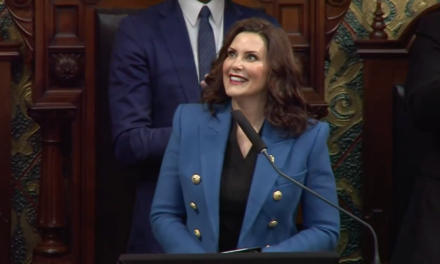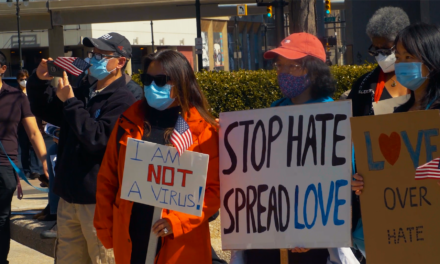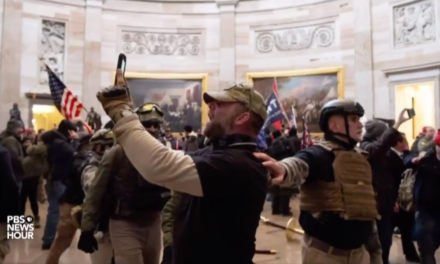For the first time in nearly 70 years, Detroit does not have an African American representative in Congress. Last year, voters did not elect any of the eight African Americans who ran for an open 13th District U.S. Congressional seat. Instead, Rep. Shri Thanedar, an immigrant from India, was chosen to represent the city, which has a nearly 80% Black population. State Sen. Adam Hollier was the Black candidate closest to securing the open seat behind Thanedar.
As Detroit ends an era of Black political representation in Congress, what impact will that loss have on the city’s majority-Black constituents? To find out, “American Black Journal” contributor Orlando Bailey, the engagement director for BridgeDetroit, sat down with longtime Detroit political consultant Adolph Mongo to talk about the city’s Black political representation over the years, how it has changed and why.
Plus, they discuss the role that Michigan’s new redistricting maps had on the 2022 election cycle and Black voter turnout in Detroit.
Full Transcript:
Orlando Bailey, Engagement Director, BridgeDetroit: So, the conversation about Black representation has been palpable lately with the election of Congressman Shri Thanedar in the election a few years ago of Congresswoman Rashida Tlaib. But at one point Detroit was a stronghold for Black political power. How do we get there? And how do we get to where we are now?
Adolph Mongo, Political Consultant: Easy, people didn’t vote and people don’t vote. And the so-called leaders who supposed to represent this majority Black population have sold out. Basically you know how can you let somebody like Tlaib come into Detroit, didn’t live in Detroit, lived in Dearborn. But it wasn’t Tlaib. We go back to Steve Tobocman who was a state rep in southwest Detroit, move from Huntington Woods to the southwest Detroit. And then you had five or six candidates running in that state rep seat, which was a seat held by a person of color, whether it was Brown or Black. They ran and Tobocman came in well finance, he won.
He represented a majority district of color. After him, it was Stephanie Chang. It was Rashida Tliab. Listen, it’s like they just brought in all these folks and said, okay, we’re going to represent that area. So it started there. Really. Detroit has always been fair when it came to electing folks that when they become a majority Black city, we still elected non-people of color, male drivers, Maryann Mahaffey, Jack Kelley, I can name them. Those people cared about Detroit, but now we got people that buy seats.
Shri Thanedar came. He ran for governor and then he went and bought a house in a part of a district. And guess what? He bought the state rep seat. A year later, he’s running for Congress with eight or nine people in a race. Tliab, same way. Brenda Jones had a great opportunity to win that seat right there. But oh, she decided she want to be in both races when John Conyers passed away. Oh, I’m a run in special election. Oh, she won a special election. Became a congresswoman what for two weeks. Okay.
Orlando Bailey: You talked about people not voting, coming out to vote. Why aren’t Black people voting?
Adolph Mongo: Well people, period, not voting, but especially people, Black people, young folks. That last candidate we had, it wasn’t really an election. It was a movement. It was Barack Obama. People came out and voted that hadn’t voted. Never voted because they wanted to make history. And he had a lot to say.
Orlando Bailey: Is that all? Is it just that they wanted to make history or he had something to say?
Adolph Mongo: Both. He had a lot to say. People was looking for something different. He brought them hope. And we don’t have candidates like that, you know, now you redistrict it. Really deluded Black representation, the Democrats threw Detroit under the bus, you know. So we are in these districts where people from Birmingham and Madison Heights and Warren, they represent Detroit now.
Orlando Bailey: Do you believe that the last congressional election was a referendum on how redistricting went? Democrats really wanted to draw districts that were going to favor Democrats, but not necessarily favor Black Democrats or Black Detroiters.
Adolph Mongo: There’s no question about it that, you know, you put a little pocket of Detroit in there. It makes a difference, but not enough difference to elect somebody, say, like Marshall Bullock, was a state senator. Boom. You know, the young lady out in Birmingham, who represents Birmingham, Royal Oak and Huntington Woods, etc… That’s her that’s her base. And she won. She killed them, raised all the money in D.C. and he didn’t even have a chance.
Orlando Bailey: I hear stories about Coleman Young and what his election meant to Black Detroiters in 1973, and they kept him elected all the way until the early 1990s, really modeling for the country, you know, Black, a Black political stronghold. Right. Talk about that time and what it meant for Black Detroiters to feel and be represented.
Adolph Mongo: Before then, you didn’t have too many Black officials. You had people getting elected.
Orlando Bailey: Like John Conyers was elected.
Adolph Mongo: John Conyers. Charlie Diggs. You know, we? State the State House, you had many women, Black women in particular, that was elected. That was a hay day. The Morrishood, his brother. Detroit had to fight at that time, had the, you know, Coleman Young had to fight the police department. Had to fight the fire department because they refused forever to hire people of color.
You know, they have a few, you know, doing the race riots of 1943. There was 35, 36 African American police officers and they took their guns from them. They disarmed them and then went. And 67, who knows, it was less than 200, maybe less than 100 that was on the police department. And he got elected and he worked 20 years in the courts to make the police department the way the community was made up.
Stay Connected:
Subscribe to Detroit Public Television’s YouTube Channel & Don’t miss American Black Journal on Tuesday at 7:30 p.m and Sunday at 9:30 a.m. on Detroit Public TV, WTVS-Channel 56.
Catch the daily conversations on our website, Facebook, Twitter and Instagram @amblackjournal.
View Past Episodes >
Watch American Black Journal on Tuesday at 7:30 p.m. and Sunday at 9:30 a.m. on Detroit Public TV, WTVS-Channel 56.




